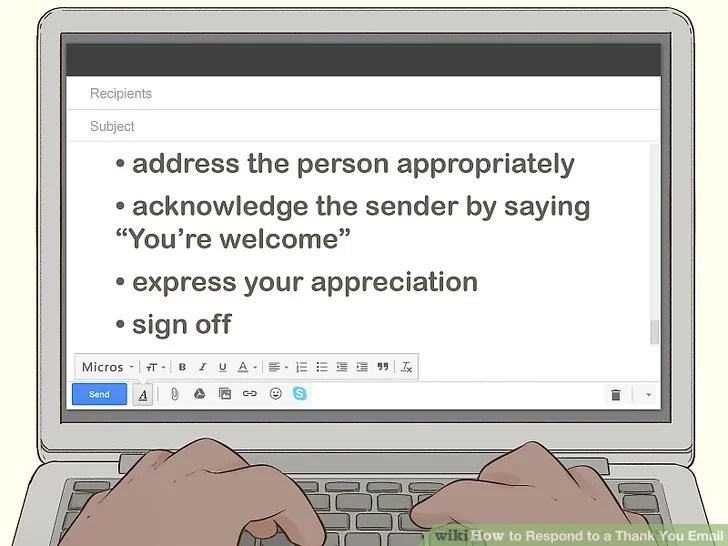What Is The Reply To Thank You? Understanding The Art Of Gratitude Responses
In a world where communication plays a pivotal role, understanding how to respond to expressions of gratitude is essential. The phrase "thank you" is one of the most common forms of appreciation, yet many people find themselves at a loss for words when faced with such a sentiment. Knowing the appropriate reply to "thank you" can enhance your relationships and foster a positive atmosphere. This article will explore various responses to "thank you," the significance of gratitude in our daily lives, and the underlying psychology that governs these interactions.
Furthermore, we will delve into cultural differences in expressing gratitude and how context can influence our replies. Whether you're in a professional setting or a casual conversation, having a well-thought-out response can make all the difference. By the end of this article, you will be equipped with various replies to "thank you" that can be tailored to different situations.
So, let's embark on this journey of understanding gratitude and its responses, ensuring that we can navigate these social nuances with ease and grace.
Table of Contents
- The Importance of Gratitude
- Common Replies to Thank You
- Contextual Replies: Professional vs. Personal
- Cultural Differences in Expressing Gratitude
- The Psychology of Gratitude Responses
- Creative Ways to Respond to Thank You
- The Importance of Sincerity in Responses
- Conclusion
The Importance of Gratitude
Gratitude is a powerful emotion that fosters goodwill and strengthens relationships. Research has shown that expressing gratitude not only benefits the recipient but also the giver. Here are some reasons why gratitude is essential:
- Enhances emotional well-being
- Improves relationships
- Promotes positive behavior
- Increases resilience
Common Replies to Thank You
When someone says "thank you," there are several universally accepted replies that convey acknowledgment and appreciation. Here are some common responses:
- "You're welcome!"
- "No problem!"
- "My pleasure!"
- "Anytime!"
- "Glad to help!"
Contextual Replies: Professional vs. Personal
The context in which gratitude is expressed can significantly influence how you should respond. Here’s a breakdown of replies based on different scenarios:
Professional Responses
In a workplace setting, maintaining professionalism is key. Appropriate responses could include:
- "I'm happy to assist."
- "It was a team effort!"
- "Thank you for your kind words."
Personal Responses
In personal interactions, you can be more casual and heartfelt. Suitable replies include:
- "I really appreciate it!"
- "It means a lot to me!"
- "You made my day!"
Cultural Differences in Expressing Gratitude
Gratitude is expressed differently across cultures, and understanding these differences can enhance communication. For instance:
- In some cultures, a simple nod or smile is sufficient.
- In others, a more elaborate response may be expected.
- In Japan, expressing gratitude may involve bowing as a sign of respect.
The Psychology of Gratitude Responses
The psychology behind gratitude is fascinating. Responding to gratitude involves acknowledging the other person's feelings while also reflecting your emotions. Here are some insights:
- Gratitude can strengthen social bonds.
- It can lead to increased happiness and life satisfaction.
- People who express gratitude often report feeling more fulfilled.
Creative Ways to Respond to Thank You
Being creative in your responses can leave a lasting impression. Consider these unique replies:
- "Thank you for the opportunity!"
- "I couldn't have done it without you!"
- "Your support means the world to me!"
The Importance of Sincerity in Responses
Sincerity is crucial when responding to expressions of gratitude. A genuine response can strengthen relationships and foster trust. Here are ways to ensure your reply is sincere:
- Maintain eye contact when responding.
- Use an authentic tone of voice.
- Be specific about what you are grateful for.
Conclusion
In conclusion, understanding the appropriate reply to "thank you" is vital for effective communication and relationship building. By recognizing the importance of gratitude, exploring common and creative responses, and considering context and cultural differences, you can navigate these interactions with confidence. Remember, a sincere and thoughtful reply can leave a positive impression and strengthen social bonds.
Now that you have a variety of responses at your disposal, we encourage you to practice them in your daily interactions. Feel free to leave a comment below sharing your favorite response to "thank you," and don't hesitate to share this article with others who might find it useful!
B.J. Thomas Cause Of Death: A Tribute To A Legendary Singer
If You Delete Tinder App Does It Unmatch?
Why Michael Jackson Is So Famous


